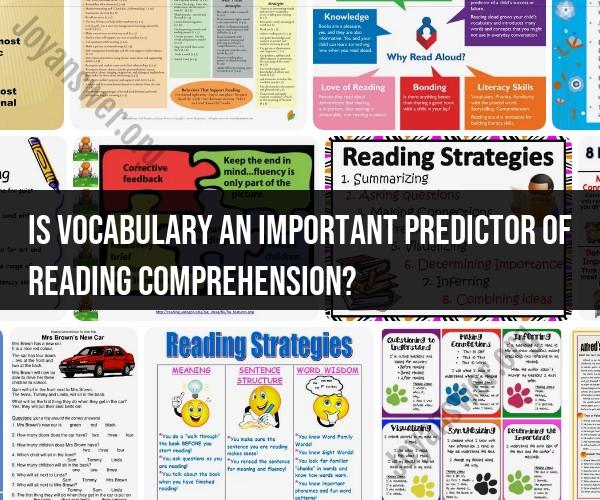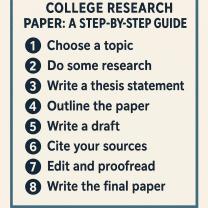Is vocabulary an important predictor of reading comprehension?
Vocabulary plays a critical role in reading comprehension and language understanding. A strong vocabulary is closely linked to a reader's ability to comprehend and interpret written text effectively. Here's how vocabulary influences reading comprehension and serves as a predictor of reading success:
Word Recognition: A strong vocabulary allows readers to recognize words quickly and accurately. When readers encounter familiar words, they can focus more on understanding the context and meaning of the text rather than struggling with individual word recognition.
Context Clues: A rich vocabulary enables readers to use context clues to infer the meanings of unfamiliar words. When readers encounter unknown words, they can rely on the surrounding text to make educated guesses about the word's meaning.
Understanding Nuances: A wide vocabulary allows readers to grasp subtle differences in meaning, tone, and connotation. This is particularly important when reading complex or literary texts where a nuanced understanding of words is essential for interpreting the author's intent.
Comprehension: Vocabulary is a key factor in reading comprehension. Readers need to understand the meanings of words to understand the overall message and ideas presented in a text. If a reader is unfamiliar with key words, their comprehension can suffer.
Inferencing: Inferencing involves drawing logical conclusions based on the information provided in the text. A strong vocabulary enhances the ability to make accurate inferences by connecting words, concepts, and ideas in meaningful ways.
Critical Thinking: A robust vocabulary supports critical thinking skills. Readers with a wide range of vocabulary can analyze, evaluate, and interpret texts more effectively, leading to a deeper understanding of the material.
Expanding Horizons: Exposure to a variety of words through reading and other sources expands a person's knowledge and perspectives. A diverse vocabulary enhances cultural literacy and broadens intellectual horizons.
Academic Success: In academic settings, a strong vocabulary is crucial for understanding textbooks, lectures, and academic papers across various subjects. Students with a strong vocabulary are better equipped to excel in their studies.
Life-Long Learning: A well-developed vocabulary supports ongoing learning and personal growth. People who enjoy reading and have a strong vocabulary tend to be more curious, adaptable, and open to new experiences.
Language Expression: An extensive vocabulary enables individuals to express themselves more precisely and eloquently. It empowers them to communicate their thoughts, ideas, and emotions effectively.
In educational settings, vocabulary development is often emphasized in early childhood education and throughout a person's academic journey. However, vocabulary acquisition is a life-long process that continues beyond formal education. Reading widely, engaging in discussions, using new words in context, and exploring various forms of media can all contribute to continuous vocabulary growth.
Overall, vocabulary is a crucial tool that not only enhances reading comprehension but also supports effective communication, critical thinking, and cognitive development.











